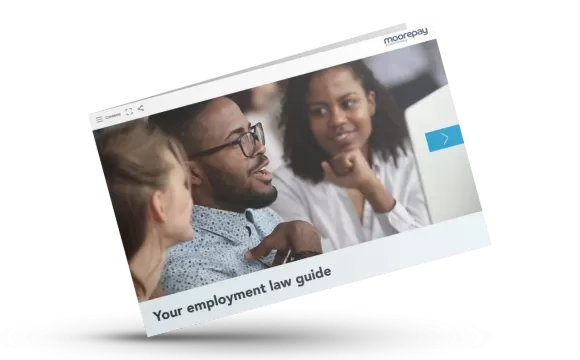Employment law: why is taking notes so important?

The best practise is any formal meeting with an employee should be recorded in some form and placed on the employee’s personnel file. This includes performance reviews and appraisals.
“This is the most important piece of equipment you will ever own. This notebook has saved my skin more times than I care to mention.”
– Nicholas Angel, Hot Fuzz (2007)
And when it comes to employment law, we agree.
However, because of the litigious nature of employment law, it almost goes without saying that it is especially important to correctly and accurately document the content of disciplinary, grievance and associated appeal hearings. This also includes meetings and actions in connection to an investigation.
Why are notes so valuable in employment law?
- They provide a contemporaneous (even if non-verbatim) snap shot of what was discussed at the time for internal record;
- can be easily referred to if needed, especially during subsequent investigations, appeals, and tribunal proceedings;
- allows third parties (particularly tribunals) to understand what the issues or concerns were at that point in time;
- can help narrow any dispute, or dispute arising thereafter;
Employers should be in the habit of taking notes at meetings. In addition, they should ask the employee to review and sign the note at the conclusion of that meeting or subsequently.
- If an employee is being difficult/defensive and refuses to sign, then ask why and suggest amendments.
- If an employee still refuses, then note these reasons down on the documents and ask them to sign the annotated document.
Importantly, date the notes at the top and ensure they are in a form that they can be read and referred to (including by others who cannot read your handwriting) at later date. Type up the notes if necessary.
Also, try to follow a structure in the meeting and the corresponding notes. Use headings for each topic discussed and use bullet points to summarise if that helps.
Should notes taken be verbatim?
There is no requirement in law for meeting notes to be verbatim, which means an exact copy of what is originally said. This can be time consuming and costly to do as not many note takers have the ability to record every word whilst in the meeting. Plus, typing up notes from a recording can be hugely time consuming and challenging. Notes that cover a summary of the key points should be ample.
Who can be a note taker in a disciplinary?
The person you choose to take notes should ideally be subjective, have excellent writing ability, and can stay still and focused for long periods of time. When taking notes during a sensitive issue like a disciplinary, the note taker should be an neutral party (perhaps an employee or HR professional) who has not been directly or indirectly involved at all in the situation at hand, and will have no biases over what the outcome of the case is. If necessary, you may need to hire an external note taker to ensure fairness.
Should I consider recording meetings electronically?
Obviously propose and agree this in advance with the relevant employee which pre-empts those clever employees who decide to do it covertly anyway.
However, recording meetings electronically can be useful but has its downsides (as Sergeant Nicholas Angel also knows from his formal Police interviews).
The benefits…
- You don’t need a dedicated note taker
- They can also be provided in electronic form quickly after the meeting/hearing and be reviewed
- It can also be transcribed in advance of any tribunal hearing
- It should also encourage participants to act more professionally in what they say, if not candidly
- As above, it may protect either party from accusations of improper conduct
The burdens…
- Transcribing may take significant admin time, or if done automatically, may be inaccurate and have to be edited
- They can be very, very long in page count compared to notes (especially within a limited page bundle) and adds to everyone’s reading time
- As with above, not only can they take time to read, they can be incredibly painful, embarrassing and boring to read, particularly for those involved in the conversation
- Sometimes it’s difficult to see the main points of discussion at the meeting for anyone else reading
But at least no one can reasonably argue with a transcript, right? No.
- Unfortunately, transcripts themselves cannot demonstrate the tone of speech used and precious tribunal time can therefore be diverted to arguing not what was said, but how it was said. Conversely notes don’t pretend to be compete record.
- Again, transcripts cannot record body language and are poor at recording anyone getting particularly upset or agitated.
Finally, keep notes, recordings and transcripts in a safe and secure, but obvious place – normally in the employee’s personnel file. Being unable to find someone’s notes is as much of problem as not having taken them in the first place.




